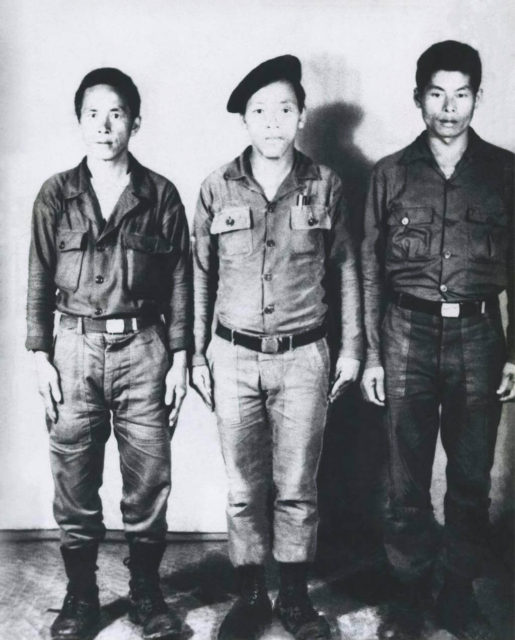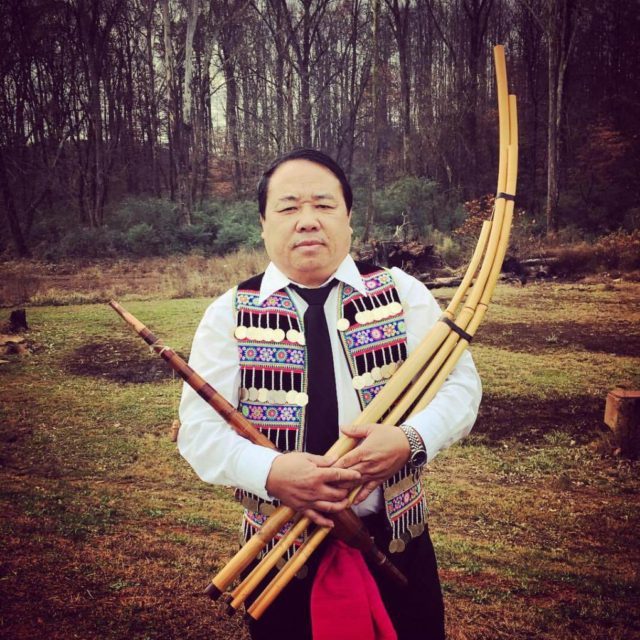This story was submitted as part of Minnesota Remembers Vietnam. We have faithfully reproduced each story as it was originally submitted for the Story Wall, and have not corrected any spelling or grammar errors.
By Shu Lor | St. Paul, MN
First and foremost, I would like to thank Twin Cities Public Television for producing such an incredible piece of work in capturing a few of the many stories involving the Hmong people’s participation and experience in the Vietnam War.
Secondly, thank you Ms. Lisa Blackstone, Katie Carpenter, Kaolee Vang, and the entire TPT team for allowing me the opportunity to be a part of this extraordinary documentary. I thank you all from the bottom of my heart.
Growing up my grandfather, Ka Ze Lor who served in the Vietnam War alongside the United States as a refugee soldier would casually tell us grandchildren war stories in story-time fashion. Six of seven grandchildren would blatantly wander around the living room as my grandfather began telling one of us his story.

He would imitate the sound of semi-automatic and automatic rifles firing, rotor blades of helicopters chopping, bombs screeching into explosion as he murmured words that were cried out in the heat of battle. My eyes watered as my 5 year old mind painted pictures of the graphic scene. As my grandfather snaps out of his trance-like state he would realize that all seven wide-eyed grandchildren had anxiously surrounded him. Most times he would dismiss the session with a humorous gesture as not to scare us. Other times he remained silent, staring back in time until he eventually dozed off.
Despite the many tragic stories we heard as children, my grandparents and parents would also tell us about the beauty that was once their home. Paddy fields stretched across villages, a stranger’s folk song intimately sung and heard through the valley, annual celebrations of hard work and freedom… I like to think that this is what runs through my parent’s and grandparent’s minds when I see them deep in thought. Not the ugliness and heartache of war.
As war broke out and families were moved into refugee camps my father continued to practice his craft. He put on a number of traditional performances in the camps as he believed in keeping the spirit of Hmong culture alive through music and performance.
My father, Boua Tong Lo, was a prodigy multi-instrumentalist. As a young boy he would travel from village to village to play the qeej (a 6-pipe bamboo flute) at cultural ceremonies and celebrations. My father would begin teaching shortly after gaining a reputation within the community. As war broke out and families were moved into refugee camps my father continued to practice his craft. He put on a number of traditional performances in the camps as he believed in keeping the spirit of Hmong culture alive through music and performance.

Although my father was a traditional instrumentalist he was also a big fan of contemporary music. He kept up with Hmong musicians, also in the camps, who were influenced by the likes of the Beatles, the Beach Boys, and Pink Floyd. To date, my father still practices, teaches, and performs traditional Hmong instruments at cultural ceremonies and celebrations.
Shu Lor recorded his parents playing instruments and singing for an original music score that he composed for America’s Secret War, a documentary from TPT about the untold, turbulent history of the CIA’s clandestine war in Laos.
Add your voice to the story at MNVietnam.org
© Twin Cities Public Television - 2018. All rights reserved.
Read Next



